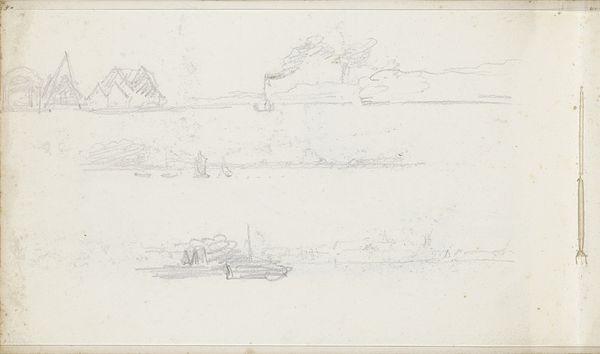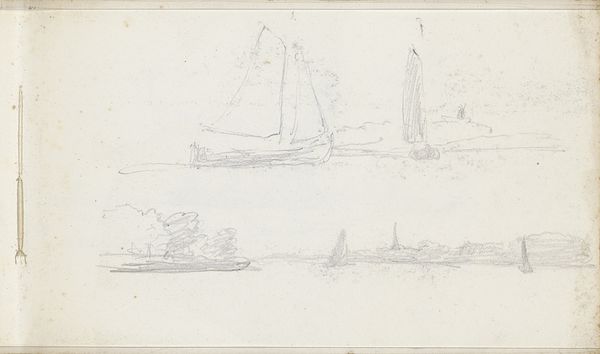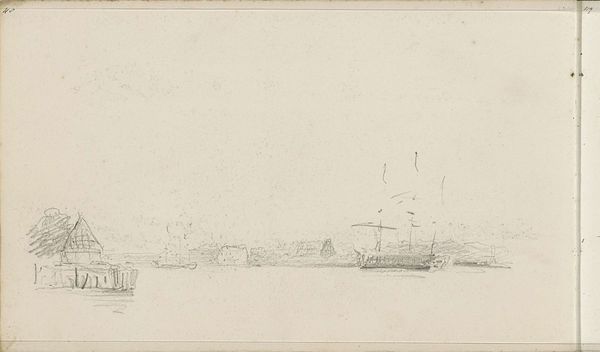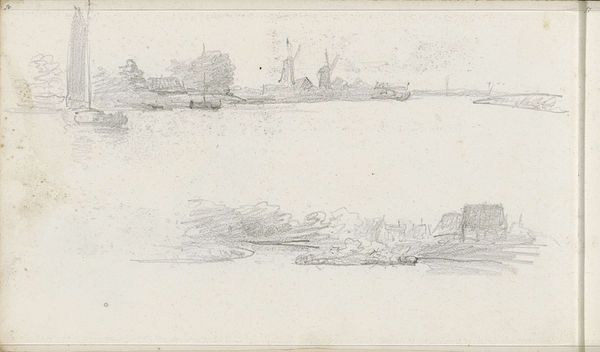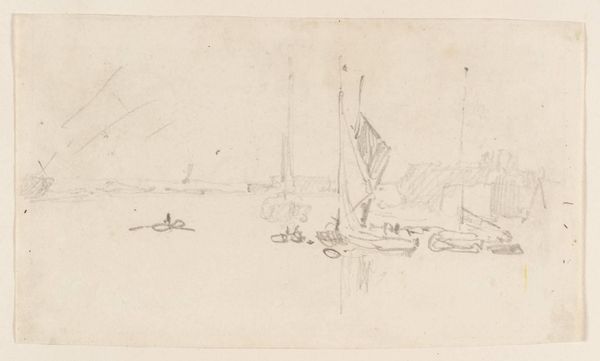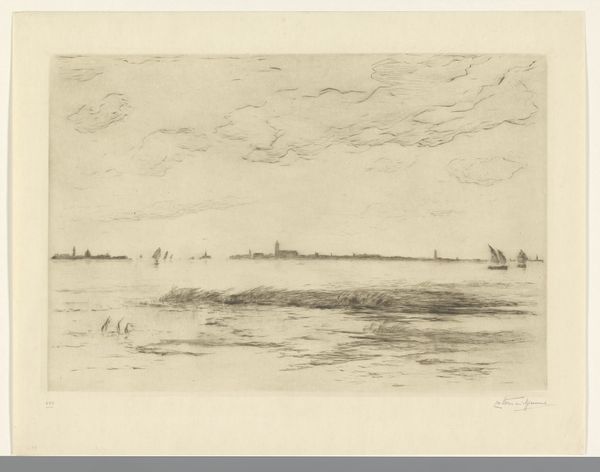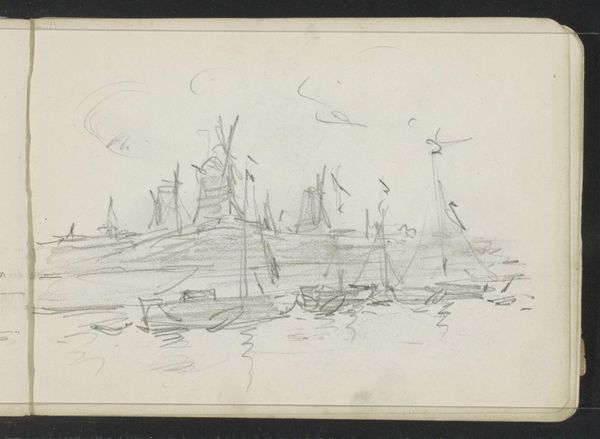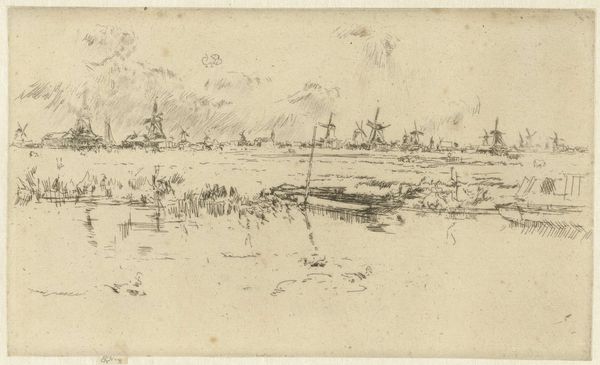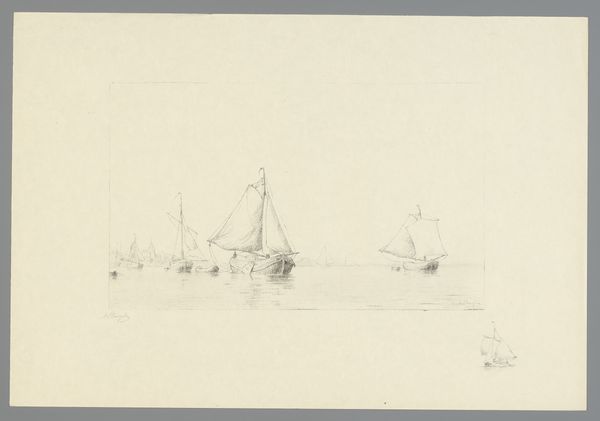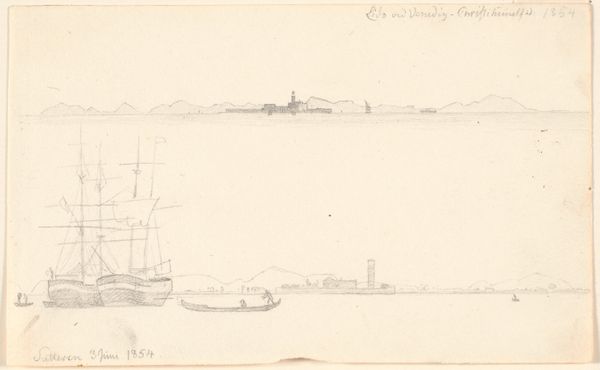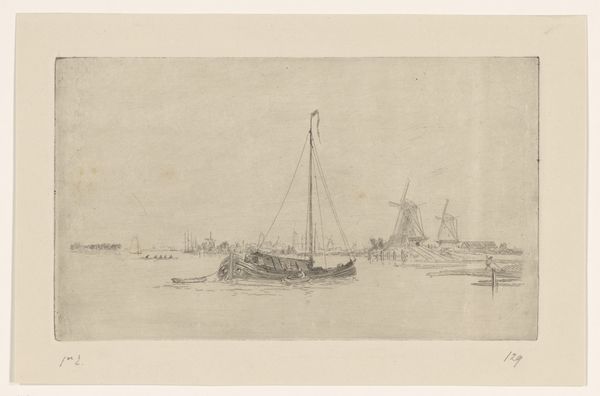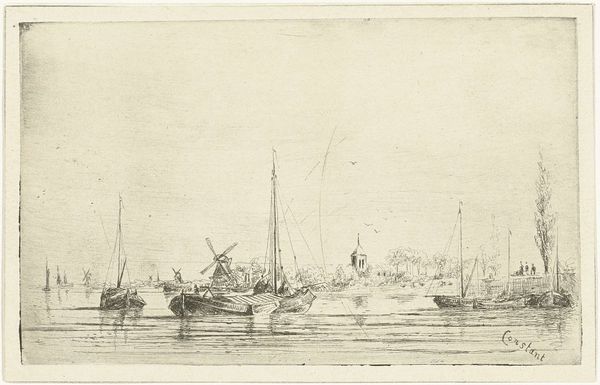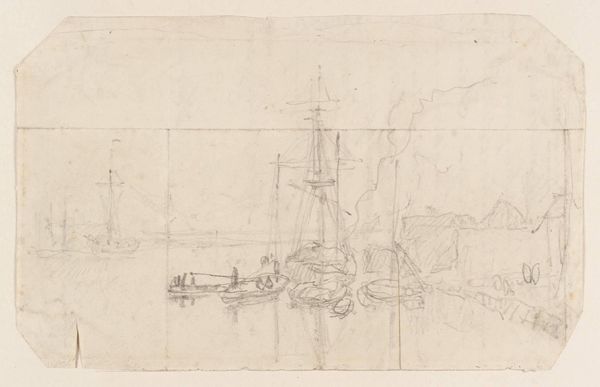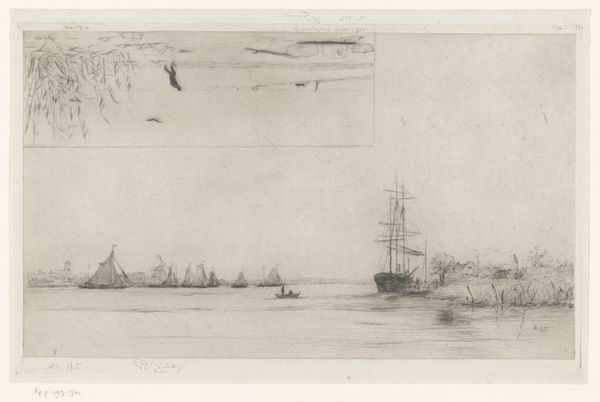
drawing, pencil
#
drawing
#
aged paper
#
light pencil work
#
quirky sketch
#
dutch-golden-age
#
sketch book
#
incomplete sketchy
#
landscape
#
river
#
personal sketchbook
#
pen-ink sketch
#
pencil
#
pen work
#
sketchbook drawing
#
sketchbook art
#
realism
Copyright: Rijks Museum: Open Domain
Curator: Up next, we have a fascinating pencil drawing titled "Riviergezichten met molens langs de Lek" which translates to "River Views with Mills Along the Lek." It's attributed to Petrus Johannes Schotel, and estimated to have been made sometime between 1841 and 1865. Editor: It feels like peering into a fleeting moment, like catching the artist in thought. All of a sudden it gives off very serene, calm and soothing vibes! Curator: Exactly! Schotel was known for his maritime scenes. Here, rather than a finished work, we're offered a glimpse into his process. Note the aged paper. This evokes the historical context, a period deeply entwined with Dutch maritime power and trade along waterways like the Lek. Editor: And these windmills! They give the drawing a kind of old-world charm. They're almost ghostly, aren't they? Kind of like whispers from another time! Curator: Yes, the mills weren't merely picturesque; they played a vital economic role. In terms of artistic interpretation, we could analyze how the loose pencil strokes suggest the ever-changing dynamics between landscape, technology, and labor, especially during a period of industrial development. Editor: I like how simple the sketches are, just bare outlines for a larger canvas. It makes me think: how would Schotel color these objects? Would he add in different brushstrokes, making the sky purple with oil paints? This is really beautiful. Curator: I'm glad you highlighted the 'incomplete' nature because this actually brings up questions regarding artistic intention and authenticity. It's in a sketchbook format and the looseness prompts discussions of art-making as something beyond commodity. How do these rough sketches relate to the market economy, considering Schotel's context? Editor: Hmm, now I'm picturing what he felt! You can imagine him maybe getting a bit annoyed because it would have been so tedious. I like imagining this sketch being imperfect! It has flaws! Curator: Absolutely. It encourages us to move past aesthetic appreciation toward a richer understanding of its socio-historical dimensions. It invites inquiries on the economic role and working conditions tied to those riverbanks. Editor: To me, this artwork invites you to think more and question more on how it would eventually become the product that would be sold off at marketplaces and galleries! Curator: For sure, thank you.
Comments
No comments
Be the first to comment and join the conversation on the ultimate creative platform.
